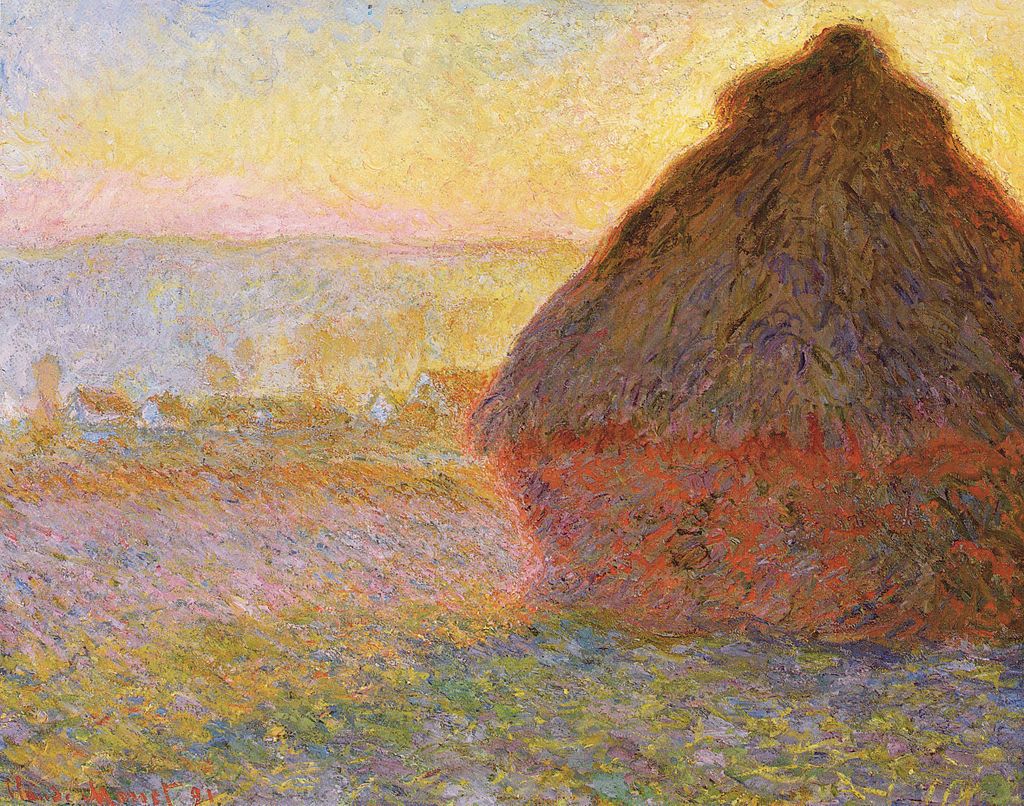Create Opportunity: On Malcolm Gladwell, Impressionism, and Being a Big Fish in a Small Pond
Who isn’t familiar with the Impressionists? Most of us, no matter how little we may know about art, have heard of Monet and Renoir. Impressionism makes an impact on the human psyche with its sublime, colorful landscapes and distinctive human subjects. It’s not an exact representation of the world

Who isn't familiar with the Impressionists? Most of us, no matter how little we may know about art, have heard of Monet and Renoir. Impressionism makes an impact on the human psyche with its sublime, colorful landscapes and distinctive human subjects. It’s not an exact representation of the world, but rather a rendition of the way we process the world.
Impressionism is fascinating because of how it creates the sense of having been done in a hurry, of being a stroke of genius, dashed off as a casual aside straight from the painter’s mind. But if you've tried to imitate this technique, you know how difficult it is. A minor change in a brushstroke can alter a person’s expression, transforming happiness into sadness or laughter into anger.
Similarly, Impressionism wasn't simply born as one of the most important artistic movements in the history of the world – a lot of careful work and thought went into bringing it to the limelight. But in a fiercely competitive art world, the Impressionists made it look easy. They did this by striking out and creating an art world of their own.
You can take inspiration from impressionism and create opportunity for yourself by working against the conventional route.
Phil McKinney
How Impressionism Can Create Opportunity
If you've read Malcolm Gladwell’s latest book, David and Goliath, you might be familiar with his theory that it’s better to be a big fish in a small pond than a small fish in a big pond. According to Gladwell, you can create your own opportunities instead of competing with others to make a name for yourself. He explains this theory by using the Impressionists as an example.
If you go by Gladwell’s theory, there’s a reason the Impressionists became as popular as they did. It wasn't just their art that separated them from other painters working at the time. It was also their approach to gaining recognition and the opportunities they created for themselves.
At a time when all other artists were slogging away trying to get into the Paris Salon, the Impressionists chose a different route. The Paris Salon was a big pond and they would have been small fish in it. Their works would have been displayed side by side with the works of many others, and sometimes at such great heights that it was nearly impossible to see them.
The Impressionists realized that they had no chance of being recognized in this impossibly competitive environment. Instead, they chose to do their own exhibition where they could display their paintings as they wanted to. This was their springboard to fame. They chose to be big fishes in a small pond: they chose to create an opportunity for themselves rather than settling for the limited opportunities available.
Recognizing Your Own Worth
You can take inspiration from impressionism and create opportunity for yourself. Once you recognize the worth of your own work and give it the frame it deserves, the world chimes in and does the same. It takes a lot of chutzpah to reject the conventional route and try something new, but this is how opportunities are created.
The opportunity to work against – or simply separate from – the conventional route is always present, and so is the opportunity to create your own small pond. If you have confidence in your strengths and ideas and devise a solid plan, all your careful efforts will look effortless – like a work of artistic genius. And if you make enough of a splash, other fish will want to join your pond.




